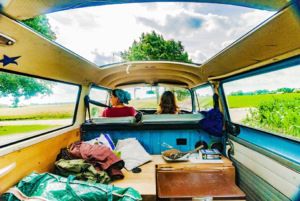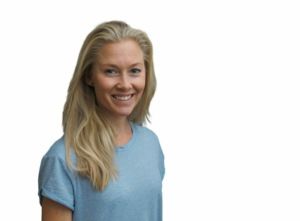Opinion
A Dane Abroad: Who’s your neighbour?
Kirsten Louise Pedersen
This article is more than 6 years old.

Thelma and Louise need to clean their car (Photo: Pixabay)
Two years and three months into calling Europe my home base again after a 15-year stint abroad, I find myself reminiscing about the geographical context I have arrived back in. At the time of writing, my partner and I are weaving our way back through Germany, after visiting a friend in Belgium. My first instinct was to just get on a plane, until it dawned on me that we could just drive there.
Contrasting Zealands
For a decade and a half, I called New Zealand home. Now, if you live in New Zealand, nothing other than New Zealand is close. For the geographically challenged, New Zealand consists of two large islands situated in the southwest Pacific Ocean. To put things into perspective, Australia is 2,000 kilometres and a three-hour plane ride away from New Zealand. If you fly or sail south, the next stop is Antarctica.
As a resident of New Zealand, it is physically impossible to ever experience getting into your car and driving to anywhere but somewhere else in New Zealand. Now this is no bad thing at all, as New Zealand is a stellar country. I would even say that its remoteness is one of my favourite things about it.
Yet, it is through contrasts that we learn to appreciate things. Just as I adored the spaciousness and peacefulness of New Zealand, since returning to live in Europe again, I find that one of the perks here is the short distance between countries and the close proximity to other cultures and languages.
Culture cornucopia
Despite the current political climate and border control tensions in various countries, it is still really easy to get around in Europe. In the space of hours it is possible to experience several cultures.
Our road-trip kicked off from Copenhagen at midday, and just a few hours later we found ourselves in northern Germany after taking the ferry across the Femern Strait in the Baltic Sea. From there, we crossed two more country borders before reaching Belgium, and yet the total driving time was only about six hours.
In Belgium we discovered Hasselt, a random small town with an absurd (but amazing) number of restaurants recommended by Michelin, which led to several culinary adventures and (probably) the best burrata & prosciutto salad in the world.
We learnt that Germany is a long-time producer of many excellent time-piece brands, which are far cheaper than many of its hyped-up counterparts, yet of superior quality, such as Junghans and Meister Singer.
And at Hof Zur Linde, a romantic old Tudor-style hotel in the woods outside Münster, we went paddle-boarding on a quiet lake full of autumn leaves, after which we had the best Riesling we have ever tasted in the hotel restaurant. It was the most expensive on the wine list, yet still yards cheaper than any equivalent in Denmark.
In between A and B
In an age in which low-flight prices enable us to travel far and wide in a matter of hours, we can risk losing touch with all the stuff between points A and B, if we focus mostly on the end station.
At the risk of sounding rather cliché, I think there is value in remembering to enjoy and appreciate the journey to ‘somewhere’, and not just the destination itself. There is so much to discover and enjoy on the way.

About
Kirsten Louise Pedersen
Born and raised in Denmark and a resident of New Zealand for over 14 years, Kirsten has lived a pretty nomadic life since her early 20s. A physiotherapist, yoga teacher and keen home cook, she is passionate about food, good living and natural health. Follow her on Instagram @kirstenlouiseyoga










































